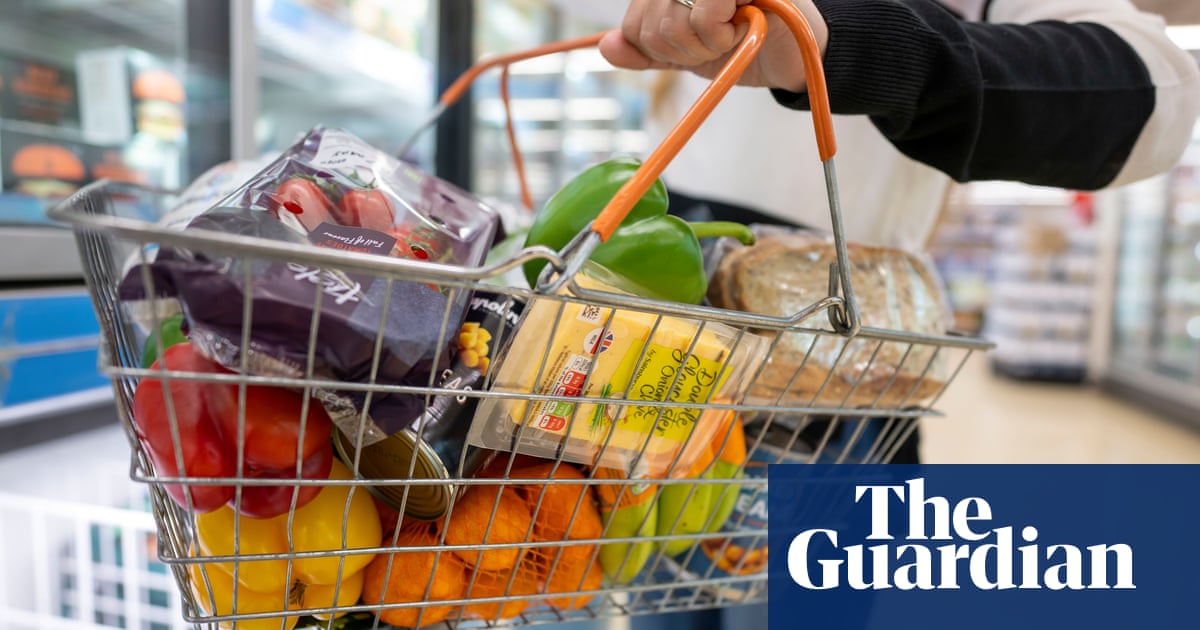
UK inflation accelerated faster than expected at the start of this year, eating into workers’ wages and reducing the chance of an interest rate cut next month.
The consumer prices index (CPI) measure rose to 3% in January, the Office for National Statistics reported, up from 2.5% in December.
City economists had expected a smaller increase in January’s inflation rate, to 2.8%.
The ONS said a jump in the cost of meat, bread and cereals pushed up food bills, while higher private school fees after the government’s withdrawal of a VAT exemption increased the cost of education services.
Airline tickets fell in price in January, but not by as much as usual, and combined with a rise in fuel costs, pushed up the annual rate of inflation in the transport sector to its highest level since February 2023.
Dean Butler, a director at the pensions business Phoenix Group, said: “With inflation rising to 3% in January, earlier expectations of a smooth ride towards a lower-inflation, lower-interest rate environment in 2025 have taken another hit.”
He said the rise in the inflation rate would deter the Bank of England from cutting rates more aggressively this year.
City investors cut the chance of an interest rate reduction in March to 15%, compared with 24% before the inflation data was released, according to the latest money market prices.
However, the City still expects two more cuts to the base interest rate this year, after the Bank of England reduced it to 4.5% earlier this month.
Rachel Reeves said: “Getting more money in people’s pockets is my number one mission. Since the election we’ve seen year-on-year wages after inflation growing at their fastest rate in three years – worth an extra £1,000 a year on average – but I know that millions of families are still struggling to make ends meet.”
The chancellor is understood to be concerned that a rise in inflation through the spring and summer would spur public sector workers to demand more than the 2.8% wage increase the government has agreed can be paid from existing budgets.
Customers with Virgin Media O2 broadband and mobile phone contracts taken out before 9 January are expected to be particularly affected by the latest inflation increase, and will see their bills increase by up to 7.5% from April.
In a practice now banned by the telecoms regulator, Ofcom, the company increases its prices each year by 3.9% plus the February reading on the retail prices index, which was 3.6%. Ofcom announced the ban in July for all new contracts from January, after a Guardian investigation last year exposed “greedflation” in the telecoms sector.
Telecoms companies say the above-inflation price increases are needed to keep investing in their networks amid rising costs. Virgin Media replaced its inflation-linked policy with a £3.50 monthly increase from April, while O2 customers will face a flat £1.80 a month rise.
A slower downward path for interest rates could weigh on the government’s finances by raising the cost of borrowing by more than expected by the Office for Budget Responsibility, the Treasury’s independent economic forecaster.
The OBR, which will announce its twice-yearly report on the day of the chancellor’s financial statement next month, will on Wednesday give Reeves an update of its assessment of the economy and the outlook for public sector borrowing.
It is understood that an earlier version of the report, which takes into account the Treasury’s revised tax and spending plans, judged that slower economic growth and an increase in borrowing costs wiped out the financial headroom the chancellor left for herself in last October’s budget.
Bank of England forecasters have predicted that inflation will rise to 3.7% this year as energy prices and utility bill increases add to business and household costs.
January’s rise in inflation will come as a blow to ministers, who were given a boost a month ago when the CPI dropped from 2.6% in November to 2.5% in December.
Earnings growth edged up to 6% including bonuses in December, giving workers a real-terms pay rise of 3.5%. However, pay rises are expected to track down this year while inflation increases, squeezing real disposable incomes.
Public sector workers received only a 4.7% increase in December, compared with 6.2% in the private sector.
The British Chambers of Commerce said: “Today’s data underlines the inflationary pressures in the economy right now and the real challenges businesses are facing.
“Firms are having to deal with significant cost burdens which threaten to fuel inflation further. Within weeks they’ll be facing the hikes in national insurance contributions and the minimum wage.”
The National Institute of Economic and Social Research predicted that January’s leap in inflation was likely to be short-lived. “While today’s ONS data shows annual CPI inflation rising to 3% in January 2025, its highest level in 10 months, this elevated figure is only transitory – due to base effects – and is expected to fall again in the coming months.”
The ONS reported that the annual inflation rate for education rose to 7.5% in the year to January 2025, from 5% in December 2024. The only item that changed price in the education division was private school fees, where prices rose by 12.7% on the month but did not change a year ago, the ONS said.
“A contributing factor to the rise in private school fees may have been education and boarding services provided by private schools becoming subject to VAT at the standard rate of 20%,” the ONS added.
Separate data released on Wednesday showed that annual UK house-price inflation rose to 4.6% in December, up from 3.9% in the 12 months to November.
Tenants continued to face proportionally larger increases in housing costs, with average UK private rents rising by 8.7% in the 12 months to January 2025, slightly slower than the 9.0% recorded in the 12 months to December 2024.












